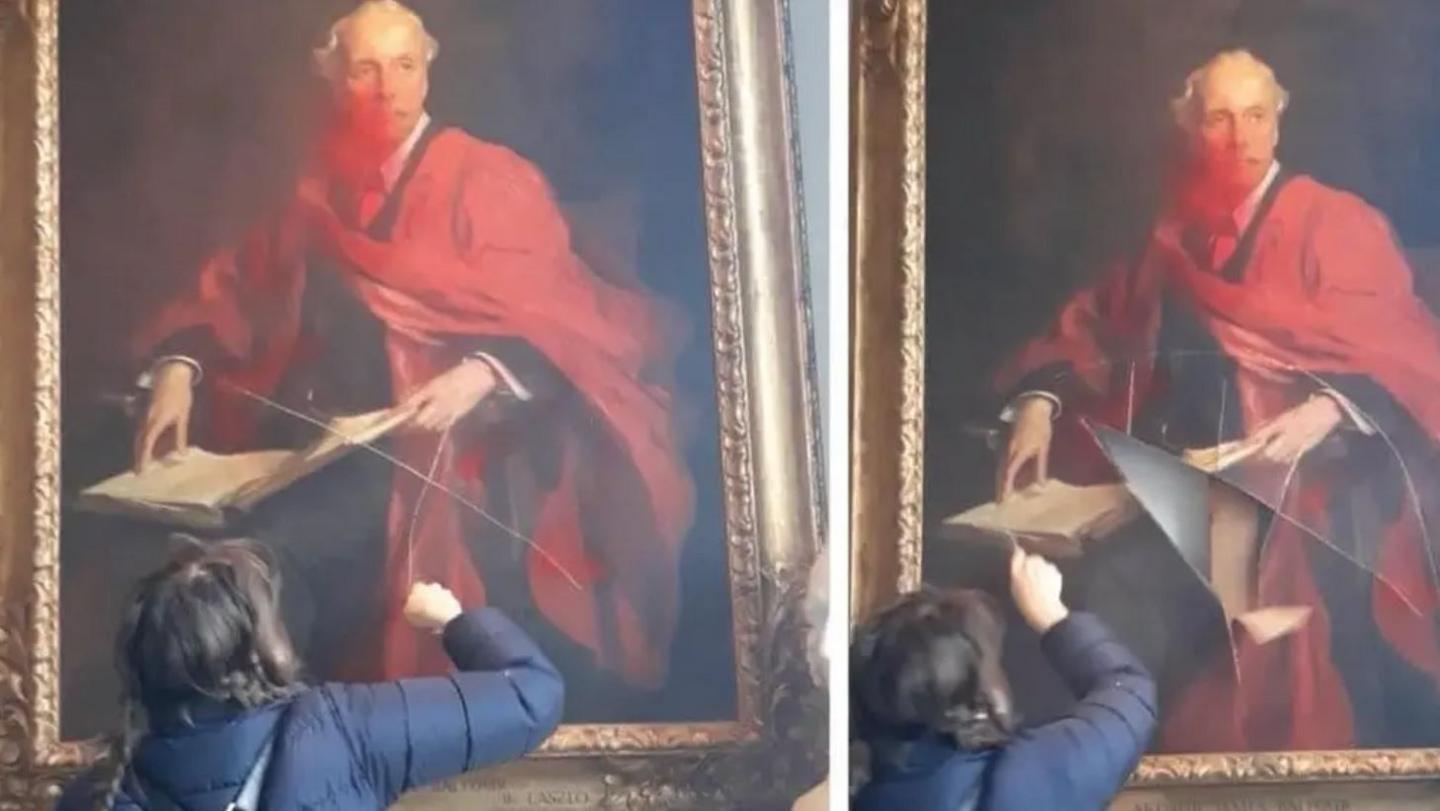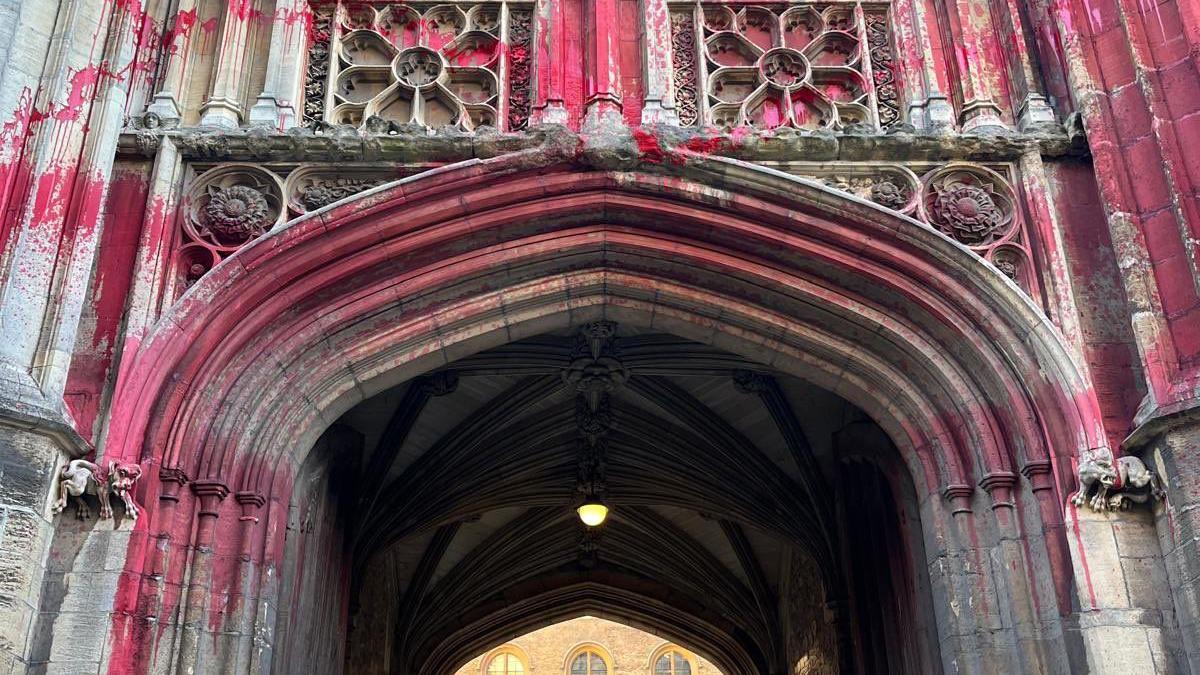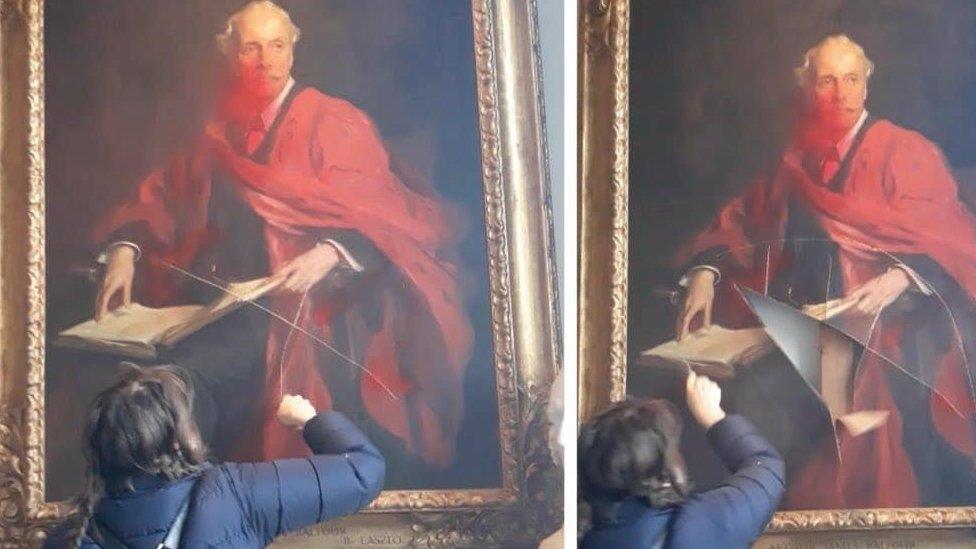Palestine Action vandalism repairs to cost £24,000

Trinity College handed police CCTV footage of the incident
- Published
A vandalised painting of an early 20th Century politician will cost at least £24,000 to repair, emails have revealed.
Palestine Action activists were filmed damaging the portrait of Lord Balfour at Trinity College, Cambridge.
The repair cost was disclosed via insurance company correspondence obtained under the Freedom of Information Act.
Trinity College said it could not disclose the full restoration assessment documentation owing to "commercial sensitivity and security concerns".
Palestine Action, which was banned last month, said one of its activists had slashed the painting and sprayed it with red paint.
Footage of the incident in March 2024 was posted on social media.
"Revealing the current location of the painting and restoration studio would pose a security risk," the college said.
"However, we can confirm that the overall cost of the restoration is approximately £24,000."
Lord Balfour was foreign secretary in 1917 when a declaration was made pledging Britain's support for the establishment "in Palestine of a national home for the Jewish people".
This is seen by some historians as a starting point for the Arab-Israeli conflict.
Shortly after the vandalism, Palestine Action issued a statement admitting responsibility.
It said: "Palestine Action ruined a 1914 painting by Philip Alexius de László inside Trinity College, University of Cambridge, of Lord Arthur James Balfour – the colonial administrator and signatory of the Balfour Declaration."
Last March, Cambridgeshire Police confirmed it would be taking no further action.
A spokesman said: "A thorough investigation was carried out but the investigation has now been filed pending any new information coming to light."
The BBC obtained the redacted email correspondence between the college and its insurance broker, Aon.
The emails described how in November 2024 the painting was moved to a new location in Cambridge and that "the restoration work is very involved".
The correspondence also revealed that the college's attempt to make a claim under a terrorism clause failed due to it not meeting the definition.
Get in touch
Do you have a story suggestion for Cambridgeshire?
Follow Cambridgeshire news on BBC Sounds, Facebook, external, Instagram, external and X, external.
- Published5 March

- Published8 March 2024
